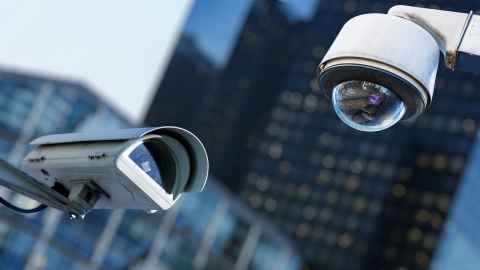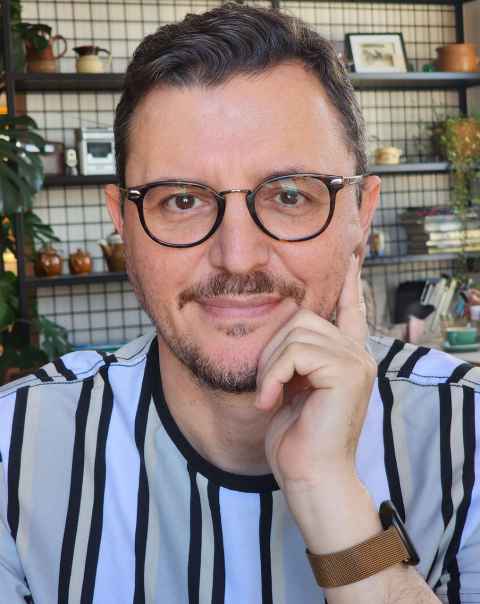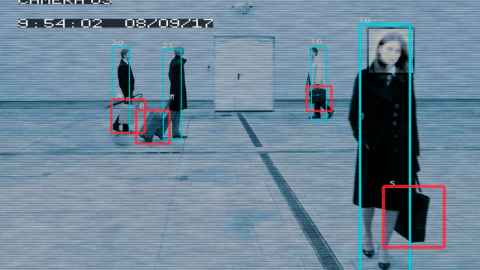Smile for the camera: when smart technology tips into surveillance
30 July 2025
Smart technologies are rolling out across Auckland, quietly changing how the city watches itself and raising questions about public awareness and consent.

AI-enabled CCTV cameras, number plate recognition systems and other smart technologies are becoming the norm in Auckland city. But with little public consensus or awareness of them, there are concerns about whether the city is expanding its surveillance infrastructure ethically.
Dr Mohsen Mohammadzadeh from the University of Auckland’s School of Architecture and Planning is an expert on smart city technologies and the ethics of big data. He says these developments raise significant questions about what it means for a democratic city like Auckland to become ‘smart’, and at what point smart tips into surveillance.
“I’m not against the technology, but I have concerns about the consequences of technology,” he says.
Smart city technologies exist for a range of reasons, including improved public safety, crime reduction, and traffic management. But Mohammadzadeh says there are elements of smart technologies that are often overlooked.

“Most of the time, we’re not familiar with how machines work, and we assume they’re working as a neutral thing, but they’re not neutral,” he says.
“There’s a predefined algorithm that explains how they should work and react in particular contexts, and the ones defining and shaping those algorithms are humans, they’re mainly companies, and they have some set of values and interests behind this kind of automation that’s quite concealed and, most of the time, overlooked by people.”
In Auckland, transport agencies own and operate more than 4,500 CCTV cameras across the city and various modes of transport, while police use privately owned automated number plate recognition cameras for a number of purposes.
Mohammadzadeh says it’s not so much the technology that’s problematic, but how it’s used and by whom.
“We know that some organisations and government agencies have been using CCTVs for a long time, we know they’ve had access to very advanced technologies, facial recognition systems and biometric technologies, there’s a lot and they come from different sources,” he says.
“We don’t have a clear idea of what level of technology is used, who owns the collected information, who will use it and for what purpose, and who should be questioned... tech companies play an important role in shaping the algorithms behind smart technologies, and that brings a new set of institutional and ethical concerns around privacy and individual rights in this kind of domain.”

Mohammadzadeh says New Zealand has the benefit of a Privacy Commissioner, who can provide guidelines on the use of smart technologies. However, technology advances at a rapid pace that bureaucratic systems can’t always keep up with, leaving some “grey areas”.
“If you look at the history of CCTVs, most of the justification for using them was increased security and safety, especially in downtown cities. It became part of the campaign to create a safer environment in public spaces, especially for vulnerable people,” he says.
“But there are also cases of AI-driven CCTVs unfairly targeting vulnerable groups and being used for filtering society, with machines automatically perceiving certain groups as threats and putting them in different categories, so we need to be careful about how the system is working and whether it’s right and fair, or if it’s being used for discriminatory purposes.”
Mohammadzadeh says more public awareness and trust is key to rolling out these technologies ethically in the future.
“Using technology without consent, or at least without informing people on how and why it’s used, creates mistrust between communities and government agencies. We need to balance it somehow,” he says.
“What’s the role of government and authority, and what’s the sense of freedom and privacy? In liberal democracies like ours, balancing these two things is quite challenging, but it’s crucial for organisations to inform people that ‘this technology is here, these are the benefits and threats, and if you have a concern, give us some feedback’.
“Most of the time, people don’t know they’re under gaze, and that’s the problem. When we inform people, it can improve the literacy about the technology itself, but also awareness in society.”
Media contact
Jogai Bhatt | Media adviser
M: 027 285 9464
E: jogai.bhatt@auckland.ac.nz